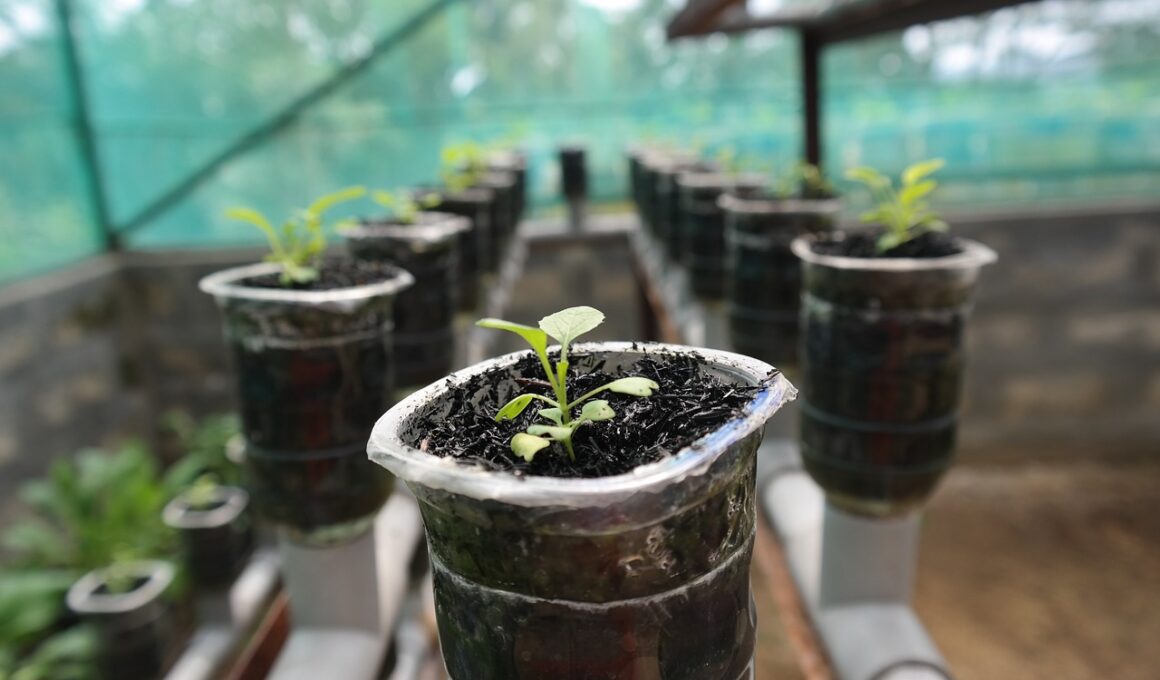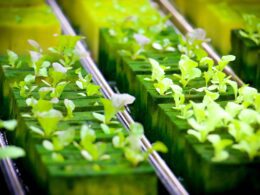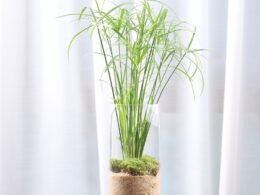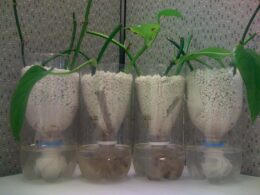Are you tired of dealing with fungal growth in your hydroponic system? Fungus can not only harm your plants but also ruin your entire crop. Luckily, there are preventive measures you can take to ensure a healthy and thriving hydroponic garden.
First and foremost, maintaining proper water quality is crucial in preventing fungal growth. Make sure you use clean water and change it regularly, as stagnant water can lead to the growth of harmful bacteria and fungi.
Additionally, keeping an eye on humidity levels and practicing good hygiene can also go a long way in preventing fungal growth.
By following these simple steps, you can keep your hydroponic garden healthy and free of unwanted fungus.
Maintain Proper Water Quality
To keep your hydroponic system fungus-free, it’s important to maintain the right water quality. This means investing in a good water filtration system that can remove impurities and harmful bacteria. You can also use a UV sterilizer to kill any potential pathogens. By keeping your water clean, you’ll create a less favorable environment for fungus to grow.
Another important factor in preventing fungus in hydroponics is balancing your nutrient levels. Too much or too little of certain nutrients can create an environment that is ripe for fungus growth. Make sure you’re using high-quality nutrients that are specifically designed for hydroponics. Test your water regularly to ensure that your nutrient levels are where they should be.
Finally, be sure to monitor your hydroponic system regularly. Look for any signs of fungus, such as discoloration or a slimy film on your plants. If you do notice any signs of fungus, take action immediately. Remove any affected plants and treat your system with a fungicide.
By staying vigilant and proactive, you can keep your hydroponic system healthy and fungus-free.
Monitor Humidity Levels
Monitoring humidity levels is crucial in avoiding fungal growth in a hydroponic system. Fungi thrive in moist environments, and the high humidity levels in a hydroponic setup can create the perfect breeding ground for them.
To prevent fungal growth, you need to invest in measuring equipment, such as a hygrometer, to keep track of the humidity levels inside your grow room. It’s recommended to maintain humidity levels between 40-60%, as anything above 70% can lead to the growth of fungi.
Aside from measuring equipment, you can also install ventilation systems that help regulate the humidity levels in your hydroponic system. A well-ventilated grow room can prevent excess moisture from accumulating, which can lead to the formation of fungi.
A good ventilation system should be able to exchange the air inside the grow room several times per hour. Moreover, it helps to install an air conditioning unit or dehumidifier to control the humidity levels, especially during the flowering stage when the plants are more susceptible to fungal infections.
In summary, monitoring humidity levels is a crucial step in preventing fungal growth in hydroponics. You can achieve this by investing in measuring equipment, such as a hygrometer, and installing ventilation systems that regulate the moisture levels in your grow room. With proper humidity control, you can ensure that your plants thrive and produce high-quality yields.
Practice Good Hygiene
Maintaining cleanliness and practicing good hygiene is essential for a healthy and thriving hydroponic system. Your hydroponic setup may seem clean initially, but it’s important to perform routine cleaning and disinfection to prevent the growth of harmful fungi.
Here are some hygiene tips to help you keep your hydroponic system clean and healthy:
- Firstly, make sure to wash your hands before handling any plant material or equipment. Your hands could be carrying harmful microorganisms that could infect your hydroponic plants.
- In addition, regularly disinfect your tools and equipment with a bleach solution or other disinfectant. This will help prevent the spread of any potential pathogens.
- Another preventative measure is to regularly clean the hydroponic system itself. This includes wiping down the reservoir and pipes with a disinfectant solution, removing any dead plant matter, and changing the water regularly.
- A clean system will prevent the growth of harmful fungi and bacteria that could damage your plants.
By following these hygiene tips and preventative measures, you can ensure that your hydroponic system remains healthy and free of harmful fungi. Remember to keep your system clean, wash your hands, and disinfect your equipment regularly. With proper care, your hydroponic plants will thrive and produce a bountiful harvest.
Can Preventing Fungus in Hydroponics Help Keep Water Fresh?
Preventing fungus in hydroponics is crucial for keeping water fresh in hydroponics. Fungus growth can contaminate the water, leading to nutrient imbalance and plant diseases. By implementing proper sanitation practices, using sterilized equipment, and maintaining adequate nutrient levels, the risk of fungal infections can be minimized, ensuring the water remains clean and suitable for plant growth.
Use Natural Fungicides
You’ll want to consider using natural fungicides to help protect your hydroponic plants from harmful fungi. These fungicides can be DIY options or commercial products. Some of the most effective natural fungicides include neem oil, chamomile tea, and garlic spray.
Neem oil is a natural oil that comes from the neem tree. It has antifungal properties that can help prevent and treat fungal infections in your hydroponic system. To use neem oil, simply mix it with water and apply it to your plants using a spray bottle.
Chamomile tea is another great option for preventing fungus in your hydroponic system. It contains anti-inflammatory and antifungal properties that can help protect your plants from harmful fungi. To use chamomile tea, simply brew a cup of tea and let it cool. Then, pour the tea into a spray bottle and apply it to your plants.
With these natural fungicides, you can have peace of mind knowing that your hydroponic plants are safe and protected.
Regularly Inspect Your Plants
Regularly checking your plants is crucial to ensure their health and catch any potential issues early on. One of the main reasons why fungus may develop in hydroponics is due to overcrowding. Proper plant spacing is necessary to prevent the spread of diseases. When plants are too close to each other, they create a humid environment that encourages fungal growth.
Make sure to follow the recommended spacing guidelines for each plant species to prevent this from happening. Another factor that can contribute to fungal growth is an imbalance in nutrient levels. When plants don’t receive the proper nutrients they need, they become weaker and more susceptible to diseases. Maintaining a balanced nutrient solution is key to keeping your plants healthy and fungus-free.
Regularly monitor the pH and nutrient levels of your hydroponic system and adjust them as needed. In addition to plant spacing and nutrient balance, light exposure and temperature control are also important factors to consider. Fungi thrive in damp and dark environments, so it’s crucial to provide your plants with adequate light and air circulation.
Keep your grow room well-ventilated and maintain a consistent temperature to prevent the growth of unwanted fungi. By regularly inspecting your plants and monitoring these key factors, you can prevent fungus from developing in your hydroponic system and ensure the health and vitality of your crops.
Frequently Asked Questions
What are some common types of fungi found in hydroponic systems?
If you’re growing plants in hydroponics, it’s important to be aware of the common fungal species that can thrive in your system. These include Pythium, Fusarium, and Rhizoctonia.
To prevent their growth, there are several methods you can take. One is to maintain proper pH and nutrient levels in your solution, as imbalances can create an environment that favors fungal growth. Another is to regularly clean and sanitize your system, removing any plant debris or algae that can serve as a breeding ground for fungi.
Additionally, using beneficial bacteria or fungi can help to outcompete harmful species and create a healthier overall ecosystem. By taking these preventative measures, you can ensure that your hydroponic system remains free of harmful fungi and your plants can thrive.
Can using tap water in hydroponics lead to fungal growth?
Using tap water in hydroponics can lead to fungal growth in your system. Chlorine is often added to tap water to disinfect it, but this chemical can harm your plants and create an environment that is conducive to fungal growth. To avoid this, consider using reverse osmosis (RO) water in your hydroponic system.
RO water is free of chlorine and other impurities that can harm your plants. Additionally, it provides a clean and healthy environment for your plants to grow. Using RO water can help prevent fungal growth and ensure the safety of your hydroponic plants.
How often should natural fungicides be applied in a hydroponic system?
To keep fungal growth at bay in your hydroponic system, it’s important to know how often to apply natural fungicides. Natural fungicides are effective in preventing fungal growth, but their effectiveness depends on how frequently they’re applied.
Depending on the type of fungicide you’re using, it’s recommended to apply it every 1-2 weeks. However, it’s important to note that over-application can lead to plant damage. It’s best to start with a lower frequency and gradually increase if necessary.
Always follow the manufacturer’s instructions and use natural fungicides that are safe for hydroponic systems. By being diligent with your fungicide application, you can ensure a healthy and thriving hydroponic garden.
Are there any specific hygiene practices to follow when working with hydroponic plants to prevent fungal growth?
To prevent fungal growth in hydroponic plants, it’s essential to maintain proper hygiene practices. This includes washing your hands thoroughly before working with the plants and using sterile tools.
Regularly cleaning the growing area, including the tanks, pumps, and tubing, can also help prevent fungal growth.
Additionally, using prevention techniques such as keeping the growing environment well-ventilated and avoiding overcrowding can reduce the risk of fungal growth.
By following these hygiene practices and prevention techniques, you can keep your hydroponic plants healthy and free from fungal infections.
How can one identify and treat a fungal infection in a hydroponic system?
If you’re experiencing a fungal infection in your hydroponic system, it’s important to first identify the symptoms. Common signs of fungal growth include a white, fuzzy substance on the roots or leaves, yellowing or browning of the foliage, and a foul odor coming from the water.
To effectively treat the infection, you can try using a fungicide specifically designed for hydroponic systems. It’s also important to sanitize your system thoroughly to prevent any further growth. Regularly clean and disinfect your equipment, change out the water frequently, and avoid overcrowding your plants.
By staying proactive and taking steps to prevent and treat fungal infections, you can ensure a healthy and thriving hydroponic system.
Conclusion
So, there you have it! Preventing fungus from growing in your hydroponic garden isn’t as difficult as it may seem. By following the tips mentioned above, you can keep your plants healthy and fungus-free.
Firstly, make sure to maintain proper water quality by using a good filtration system and changing the water regularly.
Secondly, monitor humidity levels and keep them at the right level for your plants.
Thirdly, practice good hygiene by keeping your equipment and plants clean.
Fourthly, use natural fungicides like vinegar, cinnamon, or hydrogen peroxide to prevent and treat fungus.
Lastly, regularly inspect your plants for any signs of fungus and treat it immediately if you find any.
By implementing these simple steps, you can ensure that your hydroponic garden is thriving and free from harmful fungus. Keep your plants happy and healthy, and enjoy the fruits of your labor!









